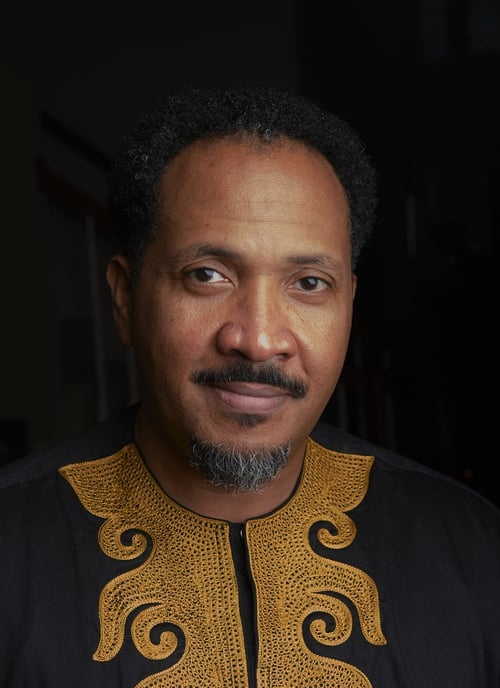- About
- Academics
- Admissions & Aid
- Life
- Research
- News & Events

Samuel T. Livingston, PH.D.
Morehouse College
Humanities, Social Sciences, Media, And Arts Division Faculty
- Associate Professor, Africana Studies
Education
University of South Carolina
Bachelor of Arts
Temple University
Master of Arts
Temple University
Doctor of Philosophy
What Morehouse Means to Me
Samuel T. Livingston, Ph.D.
I am from a small, wooded Gullah-Geechee community in Georgetown, South Carolina called, North Santee. My mother, father, and grandparents instilled in me, my siblings, and cousins a strong respect for the importance of faith, family, and education. When I earned my B.A. in psychology, I became my immediate family’s first-generation college graduate. For that reason, I have a strong degree of empathy for my first-generation students at Morehouse College. Teaching at a premier HBCU became an obtainable goal of mine after earning my doctoral degree in African American Studies from Temple University. I am the first person in my extended family to earn the doctorate, but it does not belong to me. It belongs to my, now ancestral, mother and father, Evangelist Shirley Barr Browne and Reverend Ernest Livingston, to my grandparents, Reverend Sam and Rosa Bell Barr, and Elder Abraham and Martha Livingston. It also belongs to my North Santee and Sampit communities, my barber and mentor, Randy Ford, teachers, principals, preachers, friends, and family. This is the spirit of community-centered education that I bring to my classes and students at Morehouse College. Morehouse provides me the space to be an unapologetic African-centered researcher of Black culture and Diasporic liberation movements. Serving under our founding director, Dr. Marcellus Barksdale, I became the first person to be tenured in our historic African American Studies Program, where I serve as an Associate Professor of Africana Studies. Combining research and service learning, I lead my students through a range of courses including, Introduction to Africana Studies, Africana Studies Theory, Black Liberation Movements, The Black Aesthetic of Hip Hop Culture, and African Diasporic Cultures, The Gullah-Geechee Experience. Morehouse provides me the space to envision projects that have a global reach. Inspired by friends and colleagues in the Democratic Republic of Congo, Nubia (Egyptian), and my Gullah-Geechee home community, I am engaged in the design and research of the Global Africana Ethical Text Digital Mapping project, which traces African social justice thinking from its Ancient African Roots to the Black Lives Matter Movement. Morehouse supports my research including my recent essays, “Two Warring Souls: German Nationalism versus African-centered thinking in W. E. B. Du Bois’ Quest for PanAfricanist Praxis, 1897-1948,” currently under review at Groundings: The Journal of the Walter Rodney Foundation (2024), “The African Freedmen of San Miguel de Gualdape: Mapping the Chicora Lowcountry Foundations of African American History and Culture, 1520–1526” (Journal of the African American Historical and Genealogical Society, 2019), and “An Unbroken Bond: The Place of Africa in Martin Luther King Jr.’s Liberation Thought and Praxis” (The Compass: Journal of the Association for the Study of Classical African Civilization, 2017). Morehouse is where my first two book projects are under revision, including “Centering 1526: Africana Studies and the Gullah-Geechee Origins of African American National Imagination,” and “A Black Forge of Freedom: African-centered Ethical Thought and the Foundations of Diasporic Liberation Movements.” Morehouse provides me the space to serve as a dedicated scholar-activist, as I work with the Atlanta chapter of Friends of the Congo, an organization working for justice in and just policies toward the Democratic Republic of the Congo and all of Africa. Morehouse is my maroon space that allows me to dream and work toward Black liberation.
-
AREAS OF EXPERTISE
AREAS OF EXPERTISE
- African Studies
-
Featured Content
Samuel Livingston, Ph.D. – On Topic: Juneteenth
Juneteenth memorializes the moment when the last enslaved people in Galveston, Texas were officially informed of their freedom, on June 19, 1865. To commemorate this day, associate professor of Africana studies, Dr. Samuel Livingston reflects on the significance of the holiday while recognizing the ongoing sacrifice and persistence of those involved to achieve equity and justice in this country.
AREAS OF EXPERTISE
- African Studies
Samuel Livingston, Ph.D. – On Topic: Juneteenth
Juneteenth memorializes the moment when the last enslaved people in Galveston, Texas were officially informed of their freedom, on June 19, 1865. To commemorate this day, associate professor of Africana studies, Dr. Samuel Livingston reflects on the significance of the holiday while recognizing the ongoing sacrifice and persistence of those involved to achieve equity and justice in this country.